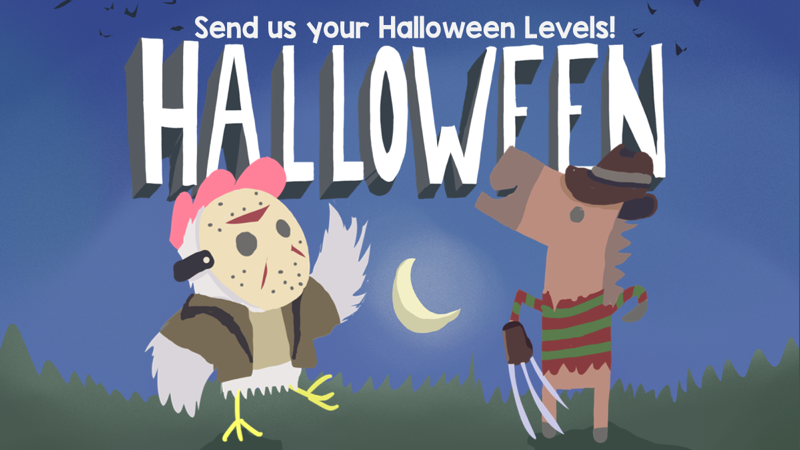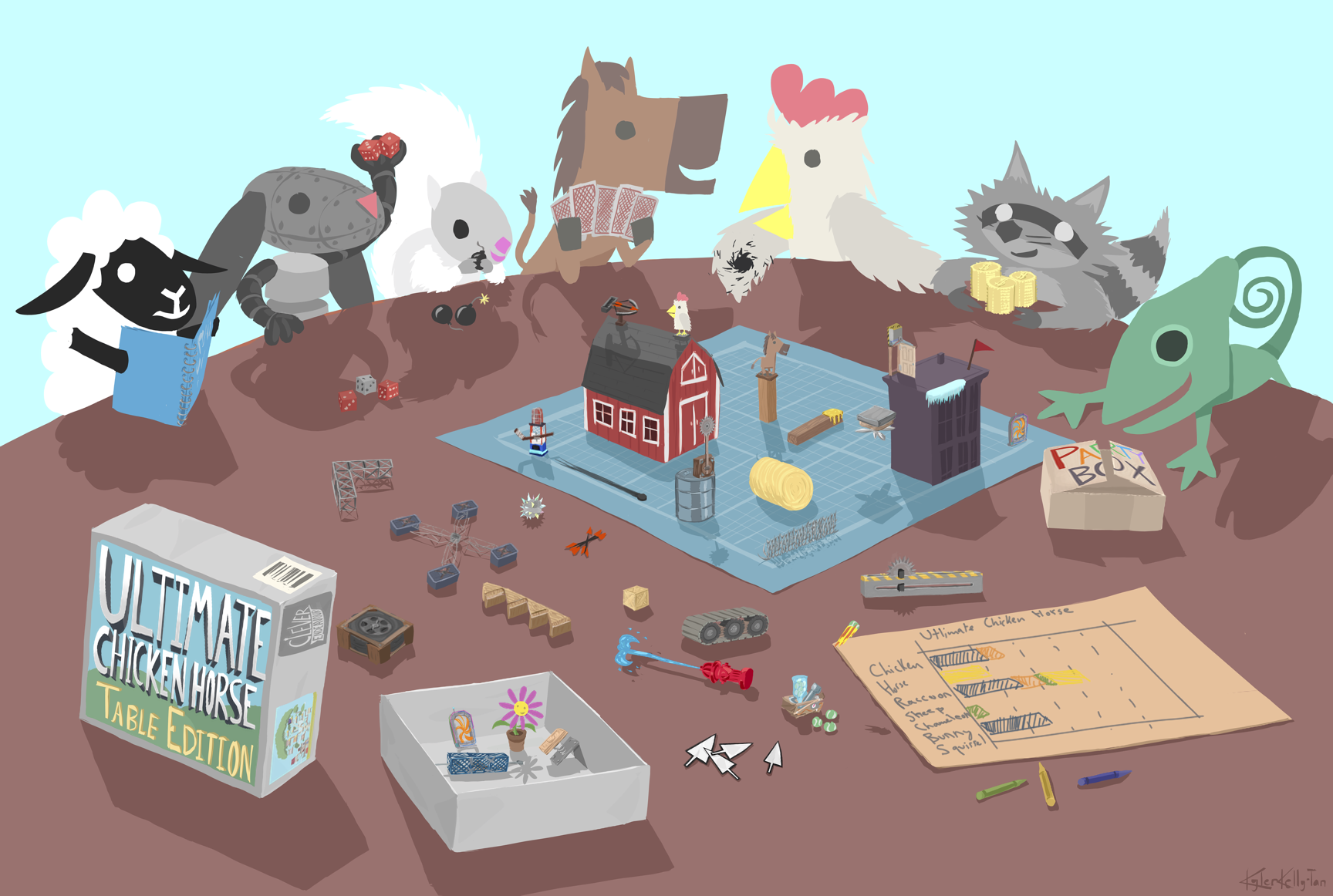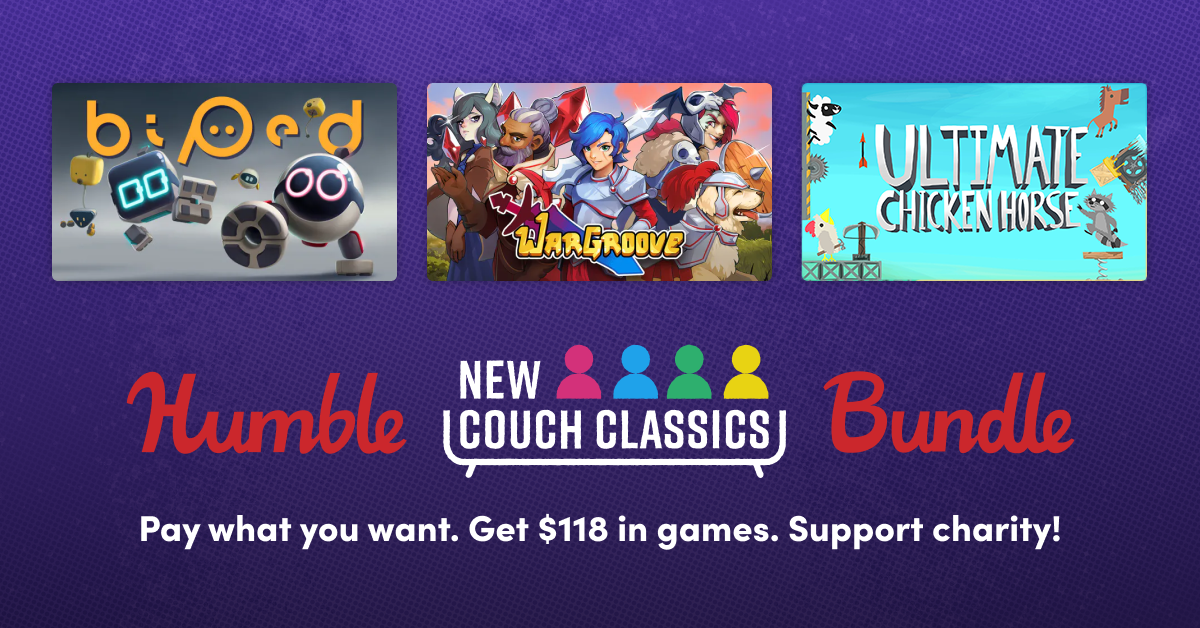We're Back From GDC 2018!
/Hello Clever Endeavians!
Eventually, we’ll find a good name for people in the community, promise. Anyway, we got back this week from the Game Developer Conference (GDC) and we’ve settled back into our work flow. We’re testing the Switch and looking for any remaining bugs and discussing what’s next for the game and the company while we’re going through certification. Also, the Multiplayer Party Pack just went live on Steam, check it out! Rich wrote a bit about his thoughts about the games conference, so read on to hear what he had to say!
Written by Richard, co-founder / designer / business guy at Clever Endeavour
--
For the last 4 years, one of my favourite times of the year has been the week in March marked by the Game Developer Conference, or GDC for short. It’s the biggest game conference in North America, and attracts a bajillion extremely interesting and inspiring people. This year, we were fortunate enough to bring the whole team. Our goals included some team bonding, learning, keeping up business relationships, and more. I definitely think we succeeded, and wanted to share a few of the most important things that I learned. I hope this post will be useful to game developers and non-developers alike.
First off, talking to the amazing devs at GDC for me thinking about Ultimate Chicken Horse and about its future. I’ve had a bit of a feeling that we’ve been working on the project for a long time, and I want to start working on new stuff… but on the other hand, the game is doing well, the community is great, and there’s still a lot of potential. So what’s next for the future of UCH? I didn’t outright ask people their opinion on this, but it was somewhat obvious that it is / was on my mind, so I got a lot of feedback on it. Do we want to go more casual and community-heavy? Do we want to add more mechanics to level the playing field, like Mariokart-style? Do we want to go more competitive? What’s required if we do that? How can we improve the tech? What does the community want? Do we have the funds to hire more people, and if so, what will they work on? I won’t go into too much detail here about my thoughts on the matter, because I don’t want to get anyone’s hopes up (or down) before the team talks about it and decides what’s next, but it’s definitely on my mind more than it was before.
Many, many games come from game jams or quick prototypes.
It feels like the majority of the successful indie games that I saw at the conference started off as game jam ideas. This was the case for Ultimate Chicken Horse, and it doesn’t really surprise me that it’s the same for many other games. It seems like game jams are a good way not only to practice skills, but also to come up with great ideas. There’s some fairly common wisdom that it’s easier to be creative given some constraints, and without thematic or timing constraints I think it can be easy to stare at a blank page forever, waiting for the next revolutionary idea to pop out of your brain. Even in the AAA studios, some of the games came from quick pitches from someone who wasn’t an owner or creative director at the company. These were as simple as a short presentation with some mechanics and some concept art, and they were off to the races. Of course, I should emphasize that it’s absolutely critical to be able to kill the project early on if it’s not working, but that’s the case whether it came from a game jam or any other method.
Ask. Just ask!
We’ve been pretty good at this, as I’m somewhat shameless when approaching people for help. But it works! You’ll never know how much you could be missing if you don’t ask other developers, publishers, platform holders, friends, family, etc. for help. The industry has a lot of wisdom that it’s very willing to share if you’re able to overcome the shame of not wanting to bug people… so do it!
Different ways work for different people, there is no right way. This point is actually what my talk with Tanya Short (Kitfox Games) was about, though we looked at it from the business side. We talked about general things that should be considered: burn rates, revenue sources, projections, diversification of studio into multiple projects or not, etc. But I also spoke to people about the creative process, and it was interesting to hear some pretty opposite views.
The big one that stood out to me was when I was talking to someone about coming up with content updates. He said that he tries to envision what the trailer for the update will look like-- that is, what’s interesting that the public will latch on to, before starting work. The idea there is that a patch with a bunch of bug fixes and user interface improvements isn’t enough to get people excited, and the trailer helps guide the production toward something useful and exciting. On the other hand, some people like to go the more organic route and play around until they find something that works well. It’s not marketing-driven and is easier to get early feedback on, but whether one way is better than the other is really up to the studio. And as with anything in this industry, many different strategies can work!
You need to build a community before launch.
This is actually a bigger topic, and I’m going to write a full article on Gamasutra and my personal website about this sometime soon. The basic idea is that you give yourself a much better chance at success if you’ve created a community around your game before the game launches.
On a less educational note, there were a couple of highlights that I wanted to point out from the conference this year, that include talks and just general feelings.
The first one of those was my favourite talk, the ‘Composer Confessions 2’ session. The talk was done last year as well, and it brings together five composers to talk about some times that they’ve screwed up and what they learned. I’ve always had a very strong personal interest in game music, and I like to write some myself (even though I’m not nearly professional), so it’s really inspiring to hear people like Austin Wintory (Journey, Assassin’s Creed, Tooth and Tail), Gareth Coker (Ori and the Blind Forest, ARK), Darren Korb (Bastion, Transistor, Pyre), Peter McConnell (Hearthstone, Psychonauts), and Gordy Haab (Battlefront 1 & 2, Halo Wars) talk about their craft.
I only mentioned a couple of the games they each worked on, but there’s a ton more and these guys are absolute legends in the field. Some of the main lessons included making sure to delegate work and not be a control freak, learning to accept what the client wants even if it’s against what your musical instincts tell you, and learning to show completed examples instead of work in progress because producers can’t imagine the finished product in the same way musicians or the composer can. Beyond that, the talk was hilarious. Each person had a 10 minute slot to talk about whatever they wanted, and somehow they all ended up being hugely entertaining and funny.
Another thing that I really liked was THAT Party, a party I hadn’t been to before because tickets sell out super quick and I had other, more “businessy” parties to go to each year. This time I went and I found it really nice to see and meet some indies that I haven’t met, but also to be able to “party” in more of a traditional sense, with drinking and dancing and such. This isn’t because I’m a natural born party animal, but rather because I like the idea of moving from the business contact mentality to the friend mentality, so a mix of that combined with more professional cocktails was nice this year.
Beyond that, I feel like our team had a good chance to bond-- not necessarily all of us at once around a table, but in pairs that would split off as we walked places, shared hotel rooms, and talked about non-game stuff together.
Alright, so it looks like this post has become huge and I should probably stop writing before everyone falls asleep. Thanks for reading if you made it this far, and I’ll have more articles coming soon!
--
All in all, the team had a great time at GDC and we enjoyed the talks, meeting other devs, hanging out, playing games, and all of the other awesome stuff that the Game Developer Conference is. Now, back to work!
Lots of Love,
Clever Endeavour <3














